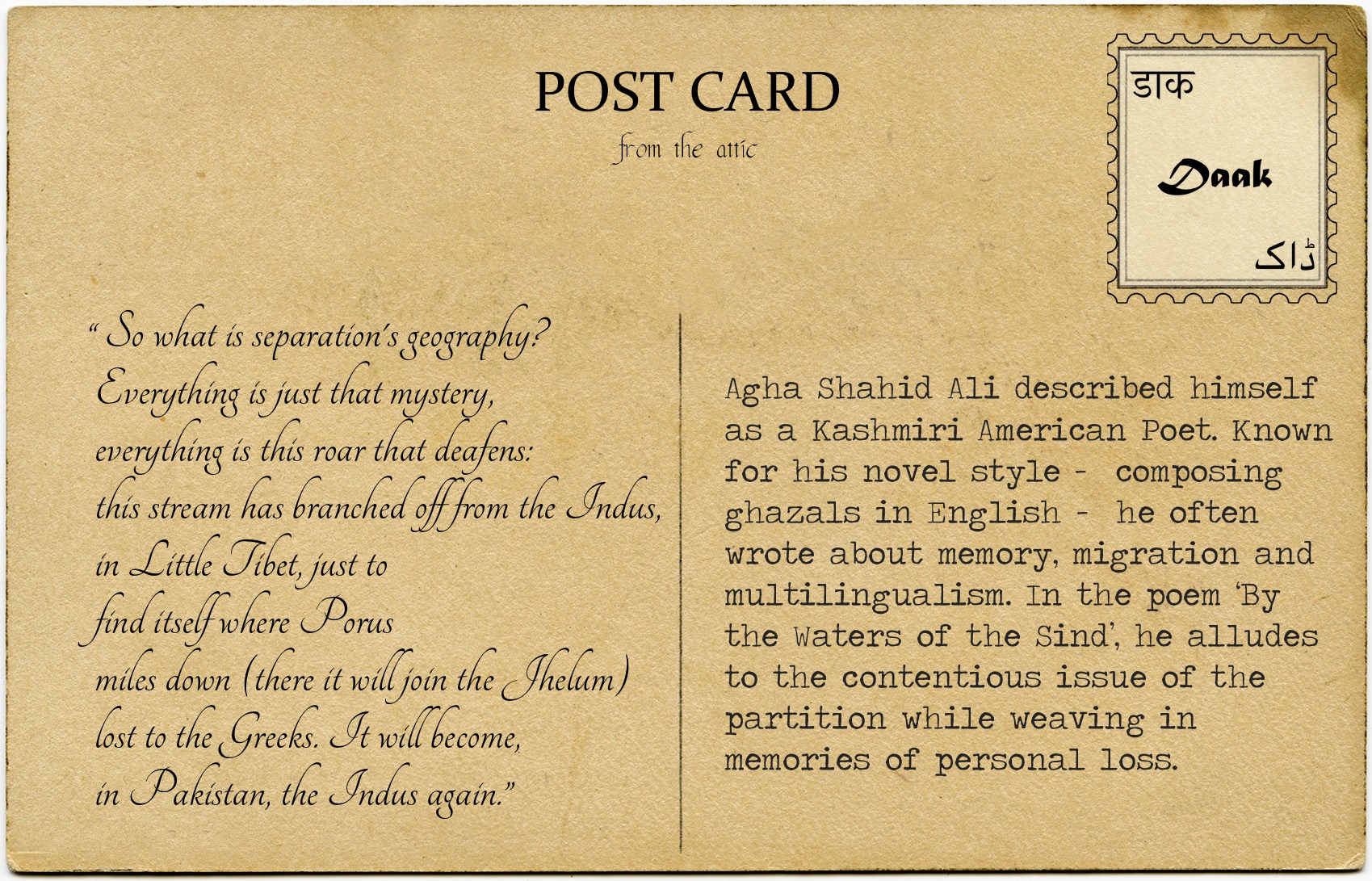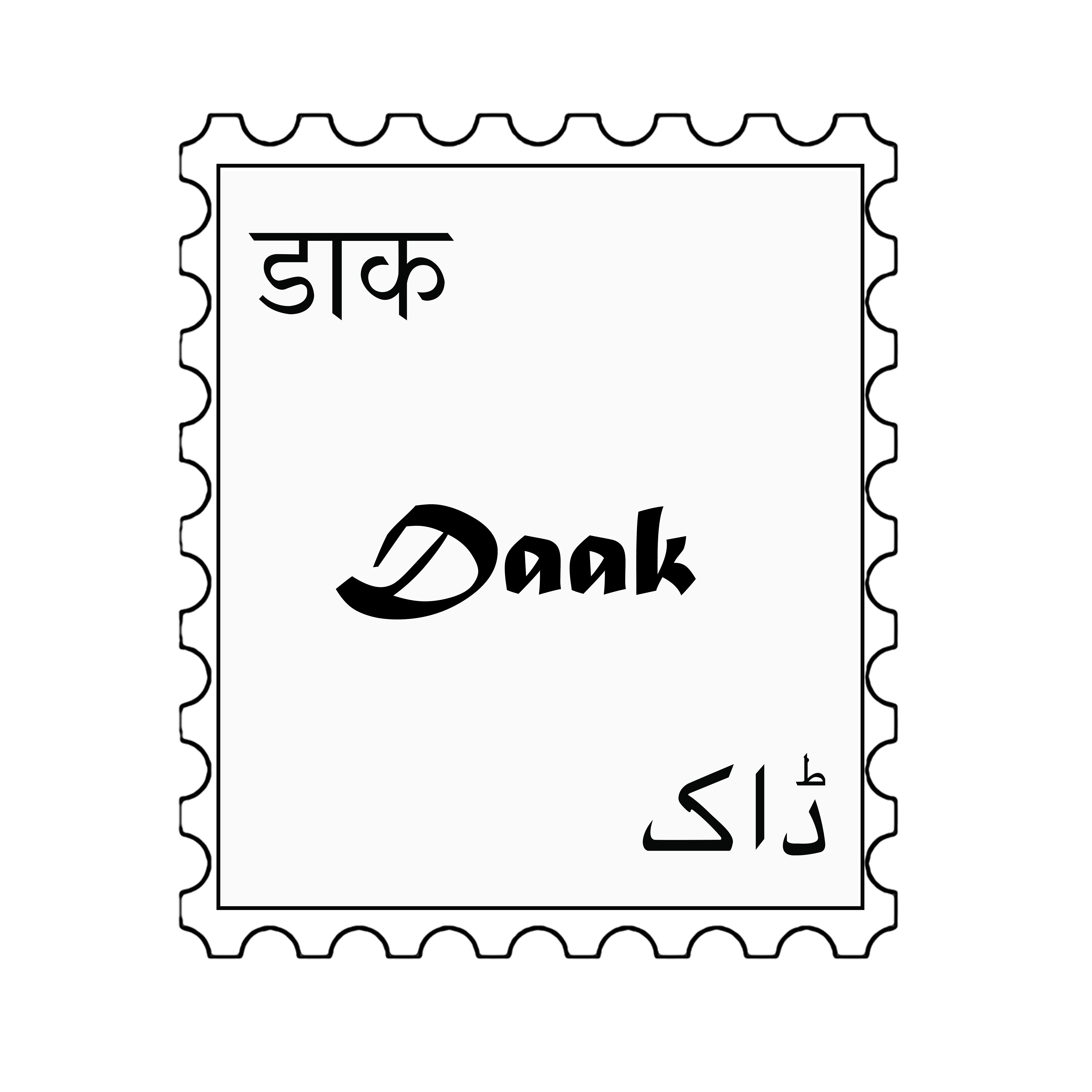
Separation’s Geography: Agha Shahid Ali’s ‘By the Waters of the Sind’
Agha Shahid Ali (1949-2001) described himself as a Kashmiri American poet. He was born in Kashmir and educated in Delhi as well as the United States of America where he eventually settled and lived until his untimely death. As a poet, he is known for his novel style of poetry – he wrote ghazals in English, bringing not only the rhyme and rhythm of Urdu poetry, but also its drama to his compositions. Amitav Ghosh writes that he “knew of no one else who would even conceive of publishing a line like “Mad heart, be brave.’’
His upbringing in a multilingual household in Kashmir and Delhi—he was taught to speak in Urdu, Kashmiri, English with a looming presence of Arabic– and his later life in ‘exile’ shaped the central themes in his work such as multilingual, multicultural richness, borders and migration, diaspora and most importantly, the blessing and curse of memory. Much of his poetry is written in his time away from his home, which he often recreates through his memories and words. A line in his poem, “Memory, no longer confused, now is a homeland” best describes the emotional crux of his poetry.
In the poem ‘By the Waters of the Sind’, he alludes to the contentious issue of the partition while weaving in his memories of personal loss.
So what is separation’s geography?
Everything is just that mystery,
everything is this roar that deafens:
this stream has branched off from the Indus,
in Little Tibet, just to
find itself where Porus
miles down (there it will join the Jhelum)
lost to the Greeks. It will become,
in Pakistan, the Indus again.
In this paragraph, he captures how even though the land may be divided, a river tears through these artificial boundaries. Amidst imagined differences lies a shared history devoid of the nomenclature of difference. He questions the idea behind the separation before bringing in a story of a personal separation. “It is two months since you left us. So this is separation?” he writes, as if to come to terms with it.
How dare the moon–I want to cry out,
Mother—shine so hauntingly out
here when I’ve sentenced it to black waves
inside me?
How dare it shine on an earth
From which you have vanished?
You can read the full poem below:
By the Waters of the Sind
Is the sinking moon–like a prisoner–
sentenced somewhere to Black Water,
perhaps left hanged on the horizon
of an Andamans island? But here,
in Kashmir, by these waters,
its light will leave me–where?
My father is–in Perisan–reciting
Hafiz of Shiraz, that “Nothing
in this world is without terrible
barriers– / Except love, not only when
it begins.” And the host fills
everyone’s glass again.
So what is separation’s geography?
Everything is just that mystery,
everything is this roar that deafens:
this stream has branched off from the Indus,
in Little Tibet, just to
find itself where Porus
miles down (there it will join the Jhelum)
lost to the Greeks. It will become,
in Pakistan, the Indus again.
Leaning against the Himalayas
(the mountains here are never
in the distance), wine-glass
in hand, I see evening come on. It is
two months since you left us. So this
is separation? Sharpened against
rocks, the stream, rapid-cutting the night,
finds its steel a little stained
with the beginning light,
and the moon must rise now from behind
that one pine-topped mountain to find
us without you. I stare at one guest
who is asking Father to fill them
in on–what else?–the future,
burnishing that dark gem
of Kashmir with a history of saints, with
prophecy, with kings, and with myth,
and I want them to change the subject
to these waters that must already
be silver there where the moon
sees the Indus empty
itself into the Arabian Sea. What
rustle of trees the wind forgot
reaches me through this roar as the moon,
risen completely, silvers the world
so ruthlessly, shining on
me a terror so pearled
that How dare the moon–I want to cry out,
Mother–shine so hauntingly out
here when I’ve sentenced it to black waves
inside me?
How dare it shine on an earth
From which you have vanished?

Leave a Reply